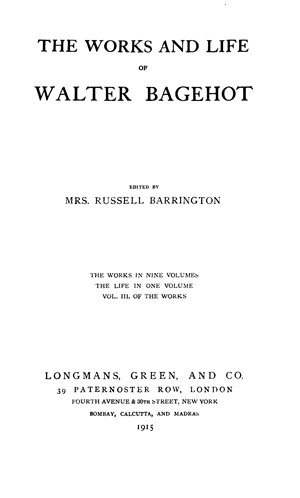
Part of: The Works and Life of Walter Bagehot, 10 vols. The Works and Life of Walter Bagehot, vol. 3 (Historical & Literary Essays)
- Mrs. Russell Barrington (editor)
- Walter Bagehot (author)
This volume contains essays on Scott, Dickens, Milton and two on parliamentary reform and the American Constitution.